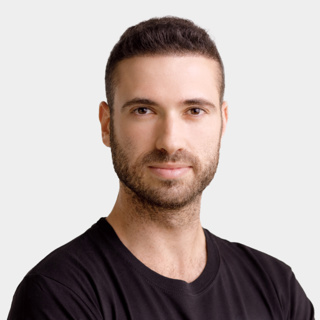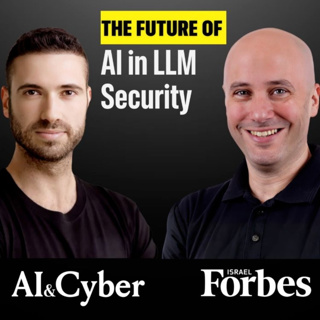
Ep446: Haim Carmel | Chief Technology Officer, HomeConnex
From my early days of programming, I was an entrepreneur and a software company owner. I finished my computer science bachelor's degree in 1999. since then, I've participated in many big projects for government offices, private sector companies and even sold one of them to a huge software company in the states. Nowadays I'm the head of the R&D department at HomeConnex, a startup that was founded in 2015 as an idea to help to develop the low tech construction and building market. With great success, we already have thousands of users and most of the big construction companies in Israel are working with us.
9 Juni 202120min

Ep445: Jason Sundby | CEO/Chairman, Verde Technologies Partner, Atlas Capital Partners
Since 2015, Jason has served as CEO of Verde Environmental Technologies Inc., maker of the Deterra® Drug Deactivation and Disposal System. He has over 30 years of experience in operations, risk management, administration, and IT leadership. Sundby is a founding partner of Atlas Capital Partners, a venture capital firm investing in companies that are post-revenue, on the verge of rapid growth, and possessing a defensible competitive advantage. Sundby completed his undergraduate studies at the University of Minnesota and continued his education at the Harvard School of Public Health and the Wharton School at the University of Pennsylvania.
8 Juni 202122min

Ep444: Irit Singer | VP of Marketing, Windward
Irit is a seasoned executive with a demonstrated history of developing and growing businesses in the high-tech industry for both B2B and B2C products. Currently, she is VP of marketing at Windward, the leading maritime AI company. Prior experiences include senior director at Microsoft, VP marketing at Here Technologies, Mobility division, and CMO at Mobli Media.
8 Juni 202121min

Ep442: Toot Shani | Co-founder and CEO, Sarona Partners
A thought leader in the startup and innovation arena, Toot is the co-founder and CEO of Sarona Partners, Israel's largest startup ecosystem. Previously, after selling her first business at age 24, she led the initiation and execution of massive Startup and economic development projects for organizations such as World Bank Group, European Commission, World Economic Forum, and others working with +5,000 startups across 4 continents.
7 Juni 202121min

Ep443: Gal Oz | CTO & Co-Founder, Pixellot
Gal is the Co-Founder and CTO of Pixellot, the world-leading company of fully autonomous video and data production for sports events. Pixellot produces a new game around the globe every 30 seconds! He served for 10 years with an elite R&D unit in the Intelligence Corps of the IDF, during which Gal worked with a different visual platform to capture information, from UAV to satellites. Prior he was in the founding group of SportVU and served as the CEO and R&D Manager of the company until it was sold to a US-based company, STATS, in 2008.
7 Juni 202125min

Ep441: Raj De Datta | Co-Founder and CEO, BloomReach
Raj De Datta is Co-Founder and CEO of BloomReach, a leading software platform for digital commerce experiences that powers brands representing 25% of retail E-Commerce in the US and the UK. Raj is a multiple-time entrepreneur. Before launching Bloomreach, he was entrepreneur-in-residence at Mohr-Davidow Ventures, served as Cisco’s director of product marketing, and was on the founding team of telecom company FirstMark Communications. Raj also worked in technology investment banking at Lazard Freres. Raj serves on the Council for Player Development for the US Tennis Association, as a Founder Partner at seed-stage venture capital firm Founder Collective and an individual investor in over 20 start-ups. He holds a BS in Electrical Engineering with a certificate in Public Policy and International affairs from Princeton University and an MBA with distinction from Harvard Business School.
6 Juni 202121min

Ep440: Ron Asher | CTO, Similarweb
Ron is the CTO of Similarweb, leading the R&D organization of the company. It is one of the best in the world in the domains of big data, data science, and research. They deliver enterprise-class quality and availability and at the same time have agility and development of a small startup. He has experience with global corporates like IBM where he led a large R&D department and also startups where he's been in their inception.
5 Juni 202123min

Ep439: Isabelle Kenyon | Founder & CEO, Calibrate
Isabelle is the Founder & CEO of Calibrate. Prior to Calibrate, she led the business operations, growth, and strategic partnerships & communications teams at Capsule, a technology business that has raised $270 million to rebuild the pharmacy from the inside out. Before Capsule, Isabelle worked at beloved consumer brands in London and New York and was selected to the Forbes 30 Under 30 Retail & E-commerce list in 2015. She began her career as an investment banker in Hong Kong and graduated from the University of Pennsylvania.
5 Juni 202117min






















